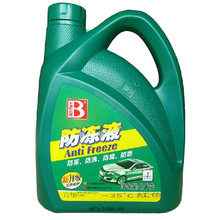A good thing about camping during the coronavirus pandemic is you can — if done responsibly — avoid spreading a disease that has no reliable medical treatments nor a vaccine.
The big picture with this still new coronavirus is clear: The virus exploits groups of people, particularly when they're gathered indoors.The pathogen has spread, and will likely continue to spread, at indoor parties, churches, offices, bars, and restaurants. In these places, the virus can effectively pass from people's mouths just by talking.
"Any place people congregate is a place where the virus can spread rapidly," said Susan Hassig, an epidemiologist at Tulane University. "And they might not know they’re infected."
Yet camping with small, close-knit company (like your household), in the fresh outdoors where you're likely to have some space, can be an inherently better option for escaping a quarantine-fashioned life. In the U.S., however, a country with no coherent national plan for reopening nor standardized testing, there isn't absolute guidance on how to enjoy the outdoors or camp.
What follows, however, is what you should consider before camping during this pandemic:
1. Camp close to home
The CDC recommends that you "Visit parks that are close to your home."
Why? "Traveling long distances to visit a park may contribute to the spread of COVID-19," says the infectious disease agency, because traveling often means being in close contact with others and stopping along the way.
What's more, popular parks attract people and crowds from around the country, particularly national parks. Infected, asymptomatic people can travel hundreds or thousands of miles from regions with higher rates of infection, potentially spreading the virus in new places. That's why it's wise to stick close to home during a pandemic. (Interpreting "close" is up to you.)
"Look at the license plates when you go in [to a national park]," Kristen Brengel, the senior vice president of government affairs at the National Parks Conservation Association, an organization that supports the national parks, told Mashable last week. "That’s who you would be rubbing elbows with on the trails."
2. Avoid crowds
Some camping spots, whether a big or small campground, will be busy. That's unavoidable. But you don't want to camp there during a pandemic.
"If you arrive at your favorite camp spot and it seems crowded, that’s going to be risky," said Melinda Forthofer, a professor and chair of the Department of Public Health Sciences at the University of North Carolina at Charlotte. "It's probably best to move on to another location."
The CDC also suggests not even visiting crowded parks, let alone camping in them.
Tweet may have been deleted
3. Have your mask handy
The preponderance of research shows that wearing a mask during the coronavirus pandemic — in places where social distancing isn't possible — significantly reduces the spread of the microbe.
"You should always have a mask with you," said Tulane University's Hassig.
That's because it's hard to know when you might need one. Masks aren't about you. They significantly reduce the number of respiratory droplets you exhale into the air, which limits the amount of virus particles others are potentially exposed to. This is critical, because around one in four infected people show no symptoms. They can unwittingly infect others.
So have a mask ready, whether on the trail, in a campground restroom, or speaking with a ranger.
"The reality is, it’s difficult to predict when we might come into closer proximity to another person," said Forthofer.
4. Bathrooms...
In many campgrounds, public bathrooms pose the greatest risk of infection. If someone is going to leave the virus somewhere, it's in a bathroom. Watch those door handles.
"One of the places I worry most about in any environment is the handles of bathrooms," said Hassig.
Hassig recommends using a paper towel or sanitizing wipe to grab door handles, and to lather your hands with hand sanitizer afterward.
5. Be careful of who you invite
At this stage of the pandemic, it's wise to go camping with people you live with. Keep it manageable.
"I would argue the best camping trip right now is with the people you’re living with," said Hassig.
Though, it's certainly possible to safely include others, she said. But that will require serious planning. It would be foolish to camp with people who have been negligent of social distancing.
"If you were meeting up with people from other areas, you have to have a conversation about what they're planning to do two weeks before the camping trip," Hassig said.
6. Closed campgrounds
Many parks are opening, but aren't risking opening campgrounds, at least not yet. With shared bathrooms, sinks, and other facilities, campgrounds are a heightened risk for not just spreading the virus, but exposing employees to infected visitors.
(Note: There's no evidence that warmer summer climes will have a significant impact on reducing transmission of the new coronavirus.)
Yellowstone National Park, for example, reopened some trails, boardwalks, and roads on May 18 in its first phase of reopening. But campgrounds, like visitor centers, remain closed.
In New York, all state campgrounds are currently closed and reservations suspended in 2020.
In contrast, most state campgrounds in North Carolina have reopened.
In these dynamic, uncertain times, it's up to you to check which campgrounds are open, or not. Different states and parks will open campgrounds at different times, if at all, this year.
7. Backcountry camping
Similar to campgrounds, backcountry camping — meaning camping in remote, wild, and usually undeveloped areas — is also quite variable.
The Grand Canyon, for example, will allow backpackers who already have wilderness reservations to descend into the canyon. But it won't issue any new backcountry permits.
The Bureau of Land Management, which manages some 245 million acres of public lands, has temporarily closed some backcountry areas. In open areas, the agency recommends not gathering in groups.
Tweet may have been deleted
Staying vigilant, even when camping, will be necessary for at least a year, said the University of North Carolina at Charlotte's Forthofer.
That's because only some two to three percent of the U.S. population has likely been infected and possibly built up some immunity (for an unknown amount of time) to this new coronavirus. This means the population is still hugely susceptible to getting infected, and sick. Critically, a vaccine likely won't be available for at least a year to 18 months (if things go extremely well).
"We don't have a vaccine. We don't have a cure. And we don't have herd immunity," said Forthofer.
So buckle up. You're living through a momentous chapter in a U.S. history book. And it won't end anytime soon. The 1918 flu, also with no vaccine, came in three waves over a year and a half.
Relish the stars, campfire, and cicadas. But beware of gatherings, even in the open air.
"This virus loves taking advantage of new groups of people," said Hassig.









